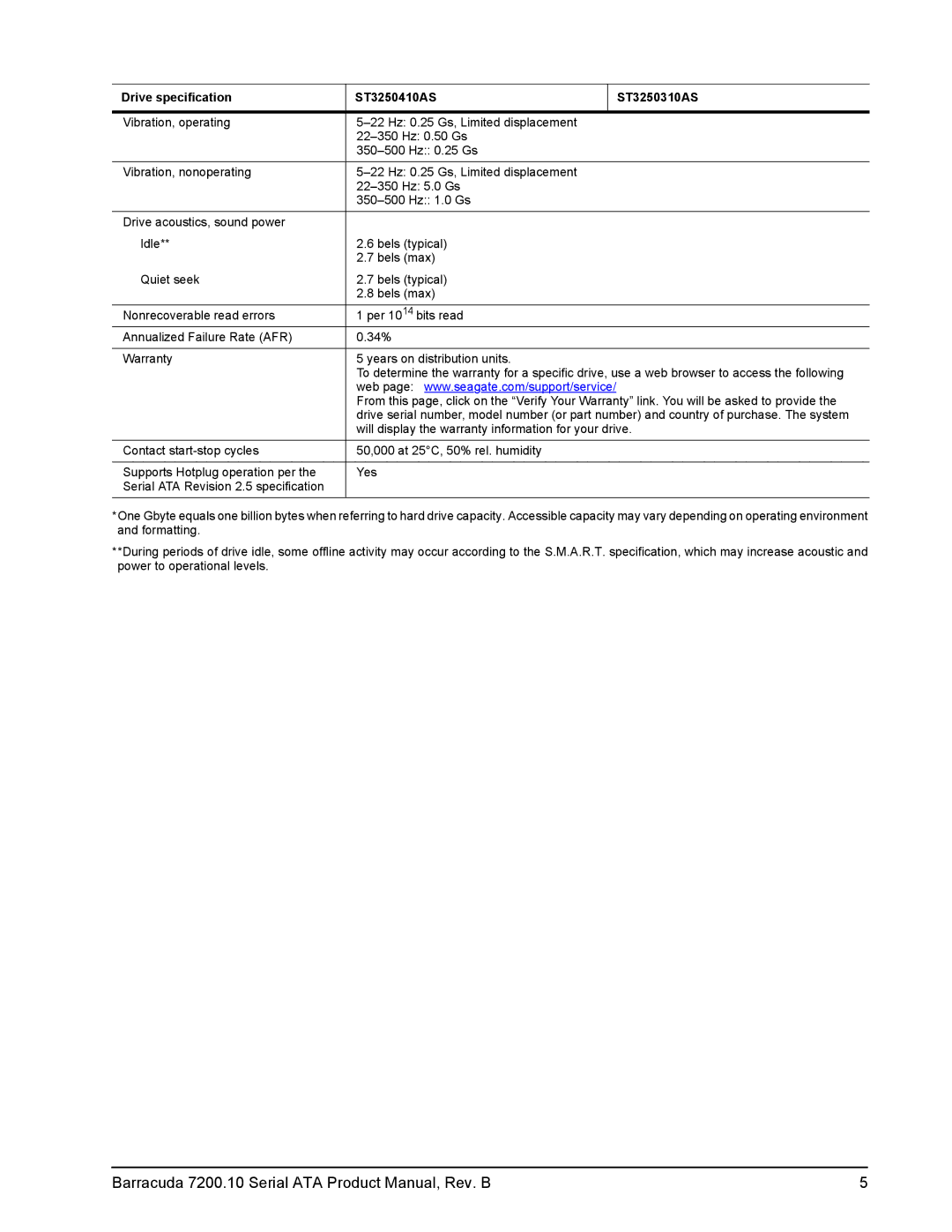ST3250310AS, ST3250410AS specifications
The Seagate ST3250310AS and ST3250410AS are notable hard drives that belong to the Barracuda series, known for their value and performance in the consumer and business sectors. These drives, featuring SATA interface technology, are especially popular among users seeking reliable storage solutions for desktops and personal computers.The ST3250310AS model comes with a storage capacity of 250 GB, while the ST3250410AS offers an increased capacity of 400 GB. Both models are designed with a standard 3.5-inch form factor, making them compatible with most PC enclosures. The drives are equipped with a 7200 RPM rotational speed, which provides enhanced data access times and improved overall performance compared to slower drives.
One of the key features of these devices is their utilization of the SATA 3.0 interface, allowing for data transfer rates of up to 3 Gbps. This interface enhances the drive's performance when paired with compatible motherboards and systems. Additionally, the drives are equipped with a 16 MB buffer, which assists in improving the efficiency of the read and write operations, particularly during tasks that require frequent data access.
Seagate's Advanced Format technology is another characteristic of the ST3250310AS and ST3250410AS. This technology uses larger sector sizes, which allows for more efficient storage of data, resulting in increased capacity and potentially improved reliability. Furthermore, the drives come with a mean time between failures (MTBF) rating of about 1,000,000 hours, signifying their robust build quality designed for durability in varied computing environments.
The hard drives also leverage Seagate's SmartAlign technology, facilitating the drive's operation with Advanced Format hard drives seamlessly. The drives are compatible with various operating systems and are particularly suited for applications requiring high data availability and fast retrieval, such as gaming and media storage.
In summary, the Seagate ST3250310AS and ST3250410AS hard drives are solid options for users looking for dependable, high-performance storage solutions. Their blend of reliability, speed, and efficiency makes them suitable for a variety of applications, from personal computing to small business use. With their combination of advanced technologies and user-friendly characteristics, these drives stand out as capable choices for enhancing computer storage capabilities.
